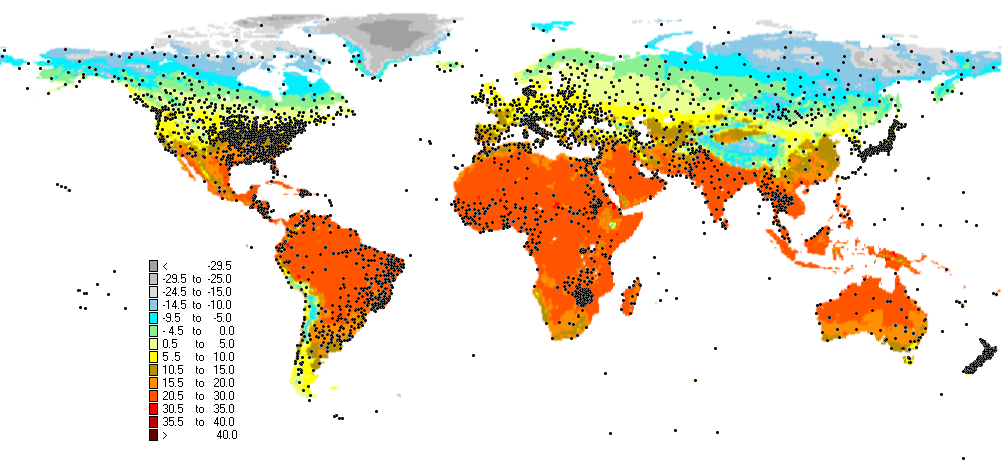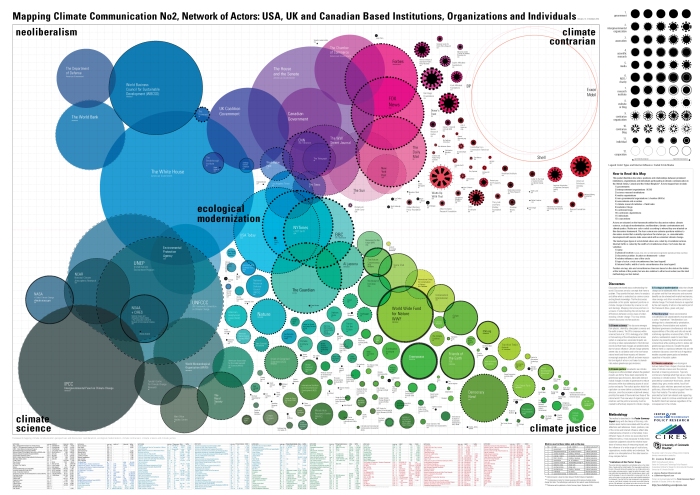By Joanna "Jody" Boehnert - EcoLabs, October 16, 201
The Mapping Climate Communication project publishes the Climate Timeline and the Network of Actors
The Mapping Climate Communication Project illustrates key events, participants and strategies in climate communication. 1) Climate Timeline visualizes the historical processes and events that have lead to various ways of communicating climate change. Key scientific, political and cultural events are plotted on a timeline that contextualizes this information within five climate discourses. These reveal very different ideological, political and scientific assumptions on climate change.
2) Network of Actors displays relationships between 237 individuals, organizations and institutions participating in climate communication in Canada, United States and the United Kingdom. A clearer version of this graphic is available here.
Details about this project can be found in the Mapping Climate Communication: PosterSummary Report. This report can be downloaded here.
The maps reveal how specific details in climate communication are contextualized within complex debates. For example:
- How does a climate march impact the volume of media coverage of climate change?
- How does the work of the climate denial industry potentially impact climate policy?
- Do popular movies and books on climate result in activity in the climate movement?
- What are the relationships between organizations active in climate communication?
By illustrating key events and actors over time and within five discourses this work makes links between disparate factors and reveals dynamics that contribute to public understanding of climate change. The project also explores politicised issues in climate communication by using a discourse approach to analyse the various strategies and ideologies held by those organizations, institutions and individuals participating in climate communication in the public realm. This report describes the impact of neoliberal dogma and modes of governance on climate communication as one of the central problems preventing a global response to climate change. Theorizing the impact of neoliberalism on climate change communication and policy is key to an understanding of why emissions continue to rise despite the significant work by the climate science community and the environmental movement over the past four decades.



No comments:
Post a Comment